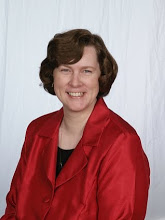When you think of a library, bookshelves lined with tomes comes to mind. If you are a bit younger, rows of computers may spring in there. These days, some libraries are so busy, you see more of the people than of the contents--which is good!
Libraries and librarians want to be busy. Librarians LIVE to serve. We live to answer questions (maybe not all of us live to answer questions from living people, but instead wish to answer a long standing theoretical question.) I like to answer people's questions. I like to dig into something and come up with material. I like to read.
One of the biggest debates in librarianship is how far do we go in our service to the patron? Do we simply fulfil their requests or do we promote our services and skills to the public/private sector that may even cross lines into the more controversial areas of life?
I have no problem putting myself out there to provide information (so long as it is sound and factually supported). I have no problem supporting another's viewpoint, again so long as it can be factually supported. Ethically, I cannot withhold information when asked for within the context of patron seeking information. In schools, parents would challenge THAT whole idea and I would have to be prepared to say I will provide it within the bounds of the school board and following the curriculum.
Social responsibility. Just how far should a library go to aid the public it serves? It has been well documented that public libraries have served their communities in astounding ways and means. In MN, we have some very well known libraries. William Mitchell Law (St Paul Central); Rondo Community Library; Roseville Area (Ramsey County's main); James J. Hill; Mpls/Hennepin County Main; etc. Our libraries serve a diverse and expanding community of new Americans. We have East African, Southeast Asian, Russian, Polish, Egyptian, Middle Eastern and Chicano/Latino communities in full bloom. They have schools, mosques, temples, churches, clubs, stores, and more. They are integrated on a daily basis and have taken on the tasks to learn the English language, obtain jobs, utilize services, and contribute. Some of the populations have reached out asking for the services. Some have not. Do we have a responsibility to say, "Hello. My name is.... I can help you find information/learn skills/apply for a job/apply for aid/take the citizenship test/'fill in your choice here'?" I think we do.
Why are people so mean?
2 days ago

